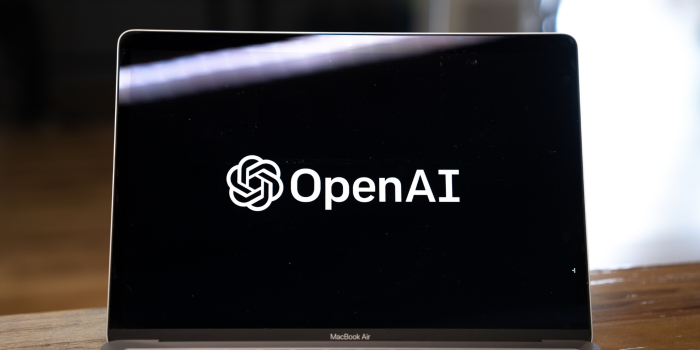OpenAI offers a range of cutting-edge AI tools designed to empower individuals and businesses with powerful artificial intelligence capabilities. These Artificial Intelligence tools from OpenAI are revolutionizing various industries and driving innovation across the globe.
One prominent AI tool from OpenAI is GPT-4, which stands for “Generative Pre-trained Transformer 4.” GPT-4 is a state-of-the-art language model that can perform a wide range of natural language processing tasks. With its vast training data and impressive capacity to understand and generate human-like text, GPT-4 has been used for tasks such as language translation, content generation, virtual assistance, and even creative writing.

Another notable AI tool developed by OpenAI is DALL·E. Powered by GPT-3, DALL·E is an AI model specifically designed for image generation. It can generate highly realistic images from textual descriptions. By inputting a specific prompt, users can instruct DALL·E to create unique and imaginative images that have never been seen before. The recent version of DALL-E is DALL-E-2 which is capable of generating realistic images as well as art from natural text inputs.
OpenAI also offers AI tools for developers, such as OpenAI Gym and OpenAI Codex. A toolset for creating and contrasting reinforcement learning algorithms is called OpenAI Gym. It provides a wide range of simulated environments where developers can train and test their AI agents. OpenAI Codex, on the other hand, is an AI system that can understand and generate code. It enables developers to write code more efficiently by providing intelligent code suggestions and auto-completion.
These AI tools from OpenAI leverage state-of-the-art machine learning algorithms and vast amounts of training data to provide users with powerful AI capabilities. Whether it’s generating creative text, producing realistic images, or assisting developers in writing code, OpenAI’s AI tools are pushing the boundaries of what’s possible in the world of artificial intelligence.
How Can OpenAI Tools Enhance Natural Language Processing Tasks?
OpenAI tools can significantly enhance natural language processing (NLP) tasks through their advanced AI capabilities. These AI tools from OpenAI, like GPT-4, offer powerful language models that understand and generate text with remarkable accuracy.
They excel in tasks such as sentiment analysis, machine translation, text summarization, and more. The tools enable faster and more efficient processing of large volumes of text, saving valuable time and resources.
OpenAI’s AI tools also possess the ability to understand context, handle ambiguity, and generate coherent responses, making them invaluable in conversational agents, virtual assistants, and chatbots. With continuous advancements, OpenAI tools are revolutionizing NLP and driving innovation across various industries.

What Are The Key Features Of OpenaAI Tools For Text Generation?
The AI tools from OpenAI offer a range of key features that make them exceptional for text generation. Firstly, they possess the ability to generate highly coherent and contextually relevant text, mimicking human-like language patterns. Secondly, OpenAI tools allow fine-grained control over the generated output, enabling users to specify the style, tone, and other desired attributes. Thirdly, the content curation is quite fast, the moment you give inputs it generates the results within seconds.
They also excel in handling prompts, and continuing text generation from a given starting point. Additionally, OpenAI tools can be fine-tuned on specific datasets, making them adaptable to various domains and tasks. With their advanced language modeling capabilities, these AI tools from OpenAI are transforming the landscape of text generation.
How Can OpenAI Tools Assist In Chatbot Development?
OpenAI tools play a vital role in chatbot development by providing powerful AI capabilities that enhance the chatbot’s conversational abilities. These AI tools from OpenAI, such as GPT-4, offer advanced natural language processing (NLP) models that enable chatbots to understand user inputs,
create comments that are pertinent to the topic and participate in thoughtful discussions. With their ability to comprehend and generate human-like text, OpenAI tools empower chatbots to provide more accurate and personalized interactions.
The AI tools from OpenAI excel in tasks like sentiment analysis, language translation, and context understanding, enabling chatbots to interpret user queries effectively. They can generate responses that are coherent, contextually appropriate, and tailored to the specific requirements of the chatbot application.
Furthermore, OpenAI tools allow developers to fine-tune the models on custom datasets, making the chatbot more domain-specific and capable of addressing specific user needs. These tools also offer options for controlling the output, allowing developers to specify the desired style, tone, or level of formality in the chatbot’s responses.
By leveraging the powerful AI tools from OpenAI, developers can create chatbots that deliver more natural and engaging conversations, leading to enhanced user experiences and improved customer satisfaction.
Are OpenAI Tools Suitable For Voice And Speech Recognition Applications?
OpenAI tools, including their advanced AI models, are not specifically designed for voice and speech recognition applications. While OpenAI primarily focuses on natural language processing (NLP) tasks, their tools can still be utilized to some extent for voice and speech-related applications.
However, for more precise and robust voice and speech recognition, dedicated speech recognition technologies and frameworks, such as deep learning-based ASR (Automatic Speech Recognition) systems, are typically employed.
These specialized systems are specifically tailored to handle the complexities and nuances of speech data, ensuring higher accuracy and performance in voice and speech recognition tasks.